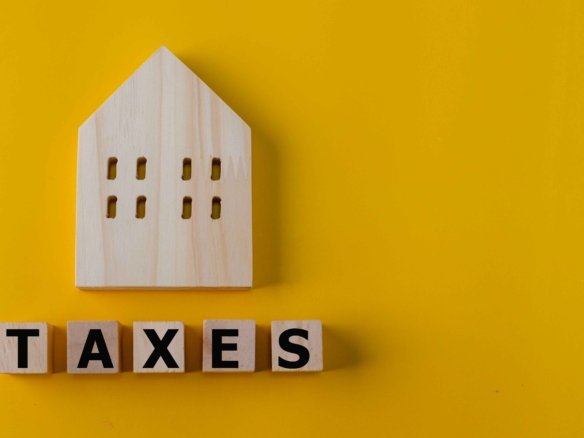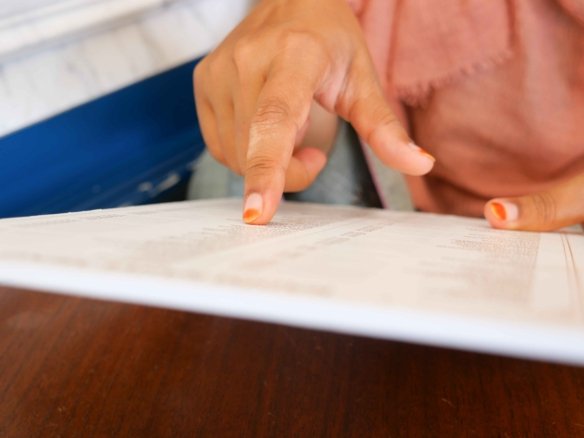Investing in tax deed auctions can be an exciting way to acquire real estate at a significant discount. If you’ve heard about tax deed auctions and want to know how to get started, you’re in the right place! In this beginner’s guide, we’ll walk you through everything you need to know about how to find tax deed auctions near you.
What is a Tax Deed Auction?
Before we dive into how to find tax deed auctions, it’s essential to understand what they are. A tax deed auction is a public sale of property that has been seized by a local government due to the property owner’s failure to pay property taxes. When taxes aren’t paid, the government may auction off the property to recoup the unpaid taxes.
Winning a tax deed auction means you may acquire a property for a fraction of its market value, often without the encumbrance of a mortgage or lien, making it a potentially profitable investment. But there’s a catch—tax deed auctions can be complex, and you need to know how to navigate them.
Step 1: Research Local Tax Deed Auctions
The first step to finding tax deed auctions near you is to research the specific counties or municipalities that conduct them. Each local government has its own process for handling tax deed sales, and auctions can be held regularly or as needed.
How to Get Started:
- Visit Local Government Websites: County treasurers, tax assessors, and other local government agencies often post information about upcoming tax deed sales. Look for auction schedules, registration details, and any required documentation.
- Call Your County Clerk’s Office: If the website doesn’t provide sufficient details, contact the county clerk’s office or tax collector’s office. They can give you precise information on upcoming sales, including the types of properties available and how to register.
- Check State and Local Laws: Since tax deed auctions are regulated at the state and county levels, it’s essential to familiarize yourself with the specific rules in your area. Each state has its own rules for tax deed sales, such as redemption periods (how long the original owner has to pay off their taxes and reclaim the property).
Step 2: Use Online Auction Platforms
Another efficient way to find tax deed auctions is by using online auction platforms. These platforms often list tax deed auctions from across various counties and even different states, allowing you to search for auctions that are close to your location.
Recommended Online Platforms:
- Bid4Assets: This is one of the most popular websites where tax deed and tax lien auctions are hosted. You can search by state, county, or type of property. The platform allows you to bid online, which can be more convenient if you cannot attend an in-person auction.
- Real Auction: Real Auction offers a wide range of tax deed and tax lien auctions across the country. It’s easy to register, and you can view upcoming auction dates along with the list of properties available.
- GovDeals: While not focused solely on tax deeds, GovDeals does include tax-related properties. You can filter your searches to find the properties that suit your investment needs.
- Property Auction Sites (e.g., Auction.com): These sites may list tax deed properties, but they can also include foreclosures, short sales, and other distressed property types.
When using these platforms, make sure to create an account, read the auction terms carefully, and understand how to participate in the auction. Some platforms might require a deposit to participate in the bidding process.

Step 3: Attend Local Auctions
If you prefer the in-person experience, attending live tax deed auctions is an option. Many counties host live auctions where interested buyers can inspect properties and place bids in real time.
Tips for Attending Local Auctions:
- Look for Auction Listings: Auctions are usually held at county courthouses or government buildings. Be sure to check auction listings for the exact time and location.
- Inspect Properties Beforehand: If the county allows it, try to visit the properties you’re interested in before the auction. You’ll want to inspect the land, assess its value, and determine if any additional work is needed.
- Prepare Your Finances: Most auctions require payment immediately after winning a bid. Ensure that you have the necessary funds or financing arranged. Many auctions also require a deposit upfront to participate.
- Understand the Bidding Process: Auctions can be fast-paced and competitive. Set a budget before attending and stick to it to avoid getting caught up in bidding wars.
Step 4: Network with Other Investors
Networking can be incredibly valuable when it comes to finding tax deed auctions. Experienced investors often share tips, strategies, and auction information with others in the community. Here’s how you can build a network:
- Join Online Forums and Communities: Websites like BiggerPockets and other real estate forums are excellent places to meet other investors who can provide tips and advice on upcoming tax deed auctions.
- Attend Real Estate Meetups: Local real estate meetups and investment clubs often host discussions about tax deed investing. You might even meet people who have inside information on upcoming auctions.
- Work with a Real Estate Agent or Lawyer: Some real estate agents and attorneys specialize in tax deed properties. They can help you navigate the legal side of things and may know about tax deed auctions happening in your area.
Step 5: Analyze Available Properties
Once you’ve found tax deed auctions near you, the next step is to analyze the properties you’re interested in. Not all tax deed properties are valuable, and some may come with significant liabilities or issues. You’ll want to ensure the property is worth your investment.
Key Factors to Consider:
- Location: Is the property in a desirable area? Properties in high-demand areas tend to appreciate faster than those in less desirable locations.
- Size and Condition: Inspect the land or property to determine its condition. If it’s vacant land, research zoning regulations and development potential. If it’s an improved property, check its structural condition, utilities, and any repairs needed.
- Outstanding Liabilities: Although tax deeds typically clear most liens, make sure there are no unresolved issues, like environmental liens or special assessments. A title search may be necessary to be sure.
Step 6: Stay Updated on Auction Dates
Tax deed auctions are held regularly, but dates and availability can change. By staying updated, you can be prepared for upcoming sales.
- Sign Up for Notifications: Many government websites allow you to sign up for email alerts about upcoming auctions in your area.
- Use Auction Alerts: Online auction platforms like Bid4Assets and Real Auction let you set up alerts to notify you when new auctions are posted.
Conclusion
Finding tax deed auctions near you is the first step in making a profitable investment in real estate. Whether you’re using government websites, online platforms, attending live auctions, or networking with other investors, there are plenty of opportunities to get started. With careful research and preparation, you can make informed decisions and find tax deed properties that suit your investment goals.
At TDHunter, we specialize in helping you navigate the complexities of tax deed auctions. Whether you’re a seasoned investor or a beginner, we provide the tools, resources, and expert insights to help you succeed.
Start exploring tax deed auctions today and unlock the potential for incredible deals on real estate!






Join The Discussion